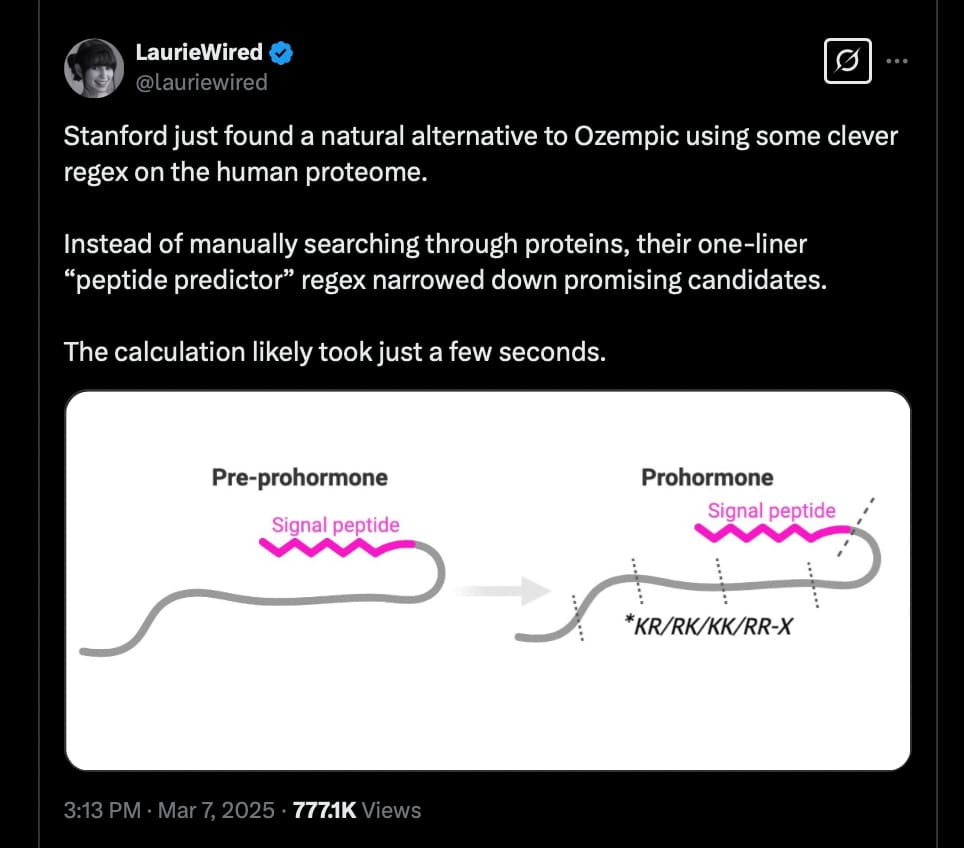A Stanford Medicine study taps artificial intelligence to find a naturally occurring molecule called a peptide that suppressed appetite and led to weight loss in mice and pigs.
The newly discovered molecule, BRP, acts through a separate but similar metabolic pathway and activates different neurons in the brain — seemingly offering a more targeted approach to body weight reduction.
“The receptors targeted by semaglutide are found in the brain but also in the gut, pancreas and other tissues,” said assistant professor of pathology Katrin Svensson, PhD. “That’s why Ozempic has widespread effects including slowing the movement of food through the digestive tract and lowering blood sugar levels. In contrast, BRP appears to act specifically in the hypothalamus, which controls appetite and metabolism.”
Svensson has co-founded a company to launch clinical trials of the molecule in humans in the near future.
Paywalled Paper:
Prohormone cleavage prediction uncovers a non-incretin anti-obesity peptide
https://www.nature.com/articles/s41586-025-08683-y
Related Twitter / X discussion:
